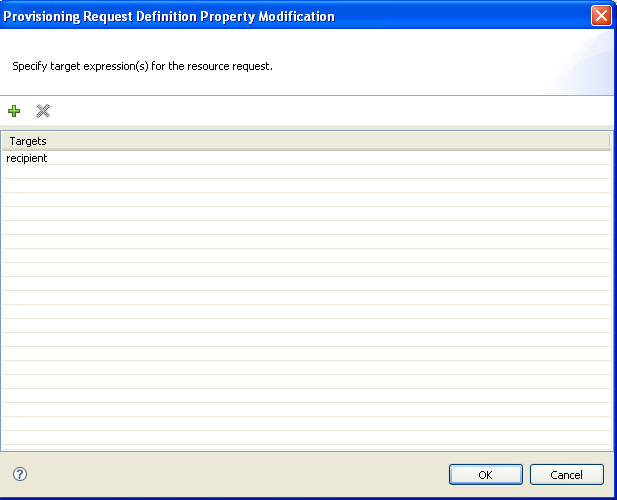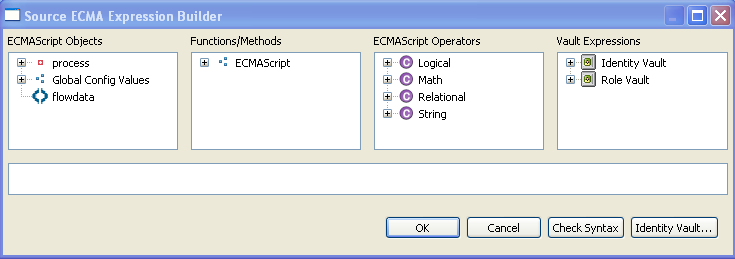7.13 Resource Request Activity
The Resource Request activity allows you to automate the granting or revoking of resources to users. For example, you might write a provisioning request definition that provisions all of the resources a new employee needs on their first day. Using the resource request activity, you can automate the approval of that employee for specified resources.
The Resource Request activity runs within the system service security context.
There is no limit on the number of Resource Request activities allowed within a workflow.
The Resource Request activity fails if the requested resource DN or the target DN is invalid, or does not exist.
The result of the resource request is written as a system comment to the comment history.
The Resource Request activity does not support the ability to set the originator of the request. Use SOAP calls rather than this activity when you need this information.
7.13.1 Properties
The Resource Request activity has the following properties:
Table 7-24 Role Request Properties
|
Property Name |
Description |
|---|---|
|
|
Required. Provides a localizable name for the activity. |
|
|
Required. An expression that resolves to a list of requested resources. For information on building this expression, see Specifying the Roles and Targets Properties. This is an example of the script to request a specific resource: 'CN=Administer Drugs,CN=ResourceDefs,CN=ResourceConfig,CN=AppConfig,' + PROVISIONING_DRIVER In this script example, the value is retrieved from flowdata:
flowdata.get('Start/request_form/resource')
|
|
|
Required. Text that describes the assignment request. This corresponds to the field of the tab. |
|
|
Specifies the action the activity should perform. Select a value from the drop-down list. The values are:
|
|
|
An optional string field. If not supplied, it defaults to the process instance ID. This string must be less than or equal to 64 characters. |
|
|
Required. An expression that resolves to the DN of the object for whom the resource is requested. The target must be an object of the User class only. The targets that you specify must resolve to the Target Type specified. For information on building this expression, see Specifying the Roles and Targets Properties. The following examples show a script for targets: 'cn=ablake,ou=users,ou=medical-idmsample,o=novell' |
|
|
Optional. A parameter required by the entitlement driver. For example, if the entitlement operation grants access to the Sales group, the parameter might specify the group. |
Specifying a Resource and Targets Properties
Designer provides a convenient way to build the Resource and Targets expressions by using the Expression Builder.
-
Click the
 button in the property’s or column.
button in the property’s or column.
Designer launches this dialog box for adding or removing expressions.

-
Click + to add a new Resource or Targets expression by using the Expression Builder.

You can choose one of the ECMAScript Objects to build the Resource or Targets expression, or use the button to select a specific resource.
-
Click after you are satisfied with expression. Repeat Step 2 to continue to add more expressions.
IMPORTANT: You cannot specify values to the resource request form fields at the time of resource request activity through Designer.
7.13.2 Data Item Mapping
Not supported with this activity.
7.13.3 E-Mail Notification
Not supported with this activity.